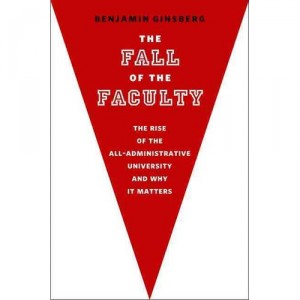 Remember the nineties, when books like Tenured Radicals and Illiberal Education appeared? All that formulaic bad journalism masquerading as social critique? Cookie-cutter stuff, really: just find a couple of examples of people in group X doing something ludicrous/criminal, and then use this as a justification to vilify all people in group X, preferably while inventing a string of belittling nicknames for them. And of course you thought to yourself: this is Ezra Levant/Fox News stuff, not something a serious academic would ever write.
Remember the nineties, when books like Tenured Radicals and Illiberal Education appeared? All that formulaic bad journalism masquerading as social critique? Cookie-cutter stuff, really: just find a couple of examples of people in group X doing something ludicrous/criminal, and then use this as a justification to vilify all people in group X, preferably while inventing a string of belittling nicknames for them. And of course you thought to yourself: this is Ezra Levant/Fox News stuff, not something a serious academic would ever write.
Well, let me introduce you to a little book currently making waves in the U.S. called The Fall of the Faculty: the All-Administrative University and Why it Matters, by Johns Hopkins professor Benjamin Ginsberg. It’s a first-class example of an academic – who may at root have a decent point – engaging in exactly the same kind of drive-by smear tactics.
The relationship between academics and non-academics is significantly more fraught south of the border. The faculty has significantly less power than it does in Canadian universities, both in the sense of unionization and in that the balance of power between presidents and senates is significantly more tilted towards the former. There’s also been a significant increase in the number of people in non-academic jobs in U.S. universities over the last couple of decades. That’s true here too, of course, but not to anything like the same extent (I’m guessing a bit of a data void in Canada, but I think this is true).
There are reasons to lament both of these things, of course. But what Ginsberg does is conflate the two. Basically, anything going on in academia which he doesn’t like, or which impinges on his view of academic liberty, must all be part of the same vast conspiracy. Stupid pointless memos? Waste and inefficiency? It’s because of “administrators” (or rather “deanlets” and “deanlings,” his preferred abusive diminutives). Political correctness? That’s administrators too, striking a deal with minority faculty to increase their power on campus. Presidents and provost have too much power? That’s administrators again.
His evidence for any of these charges usually amounts to telling a couple of anecdotes which he’s grabbed from some newspaper clippings plus a couple of his own war stories within academia. In many cases, I’m sure he’s identifying real problems. But his inability to distinguish issues of governance from issues of administrative waste, and his unwillingness to distinguish between non-academic positions which might actually be beneficial to the university (e.g., fundraisers, student services personnel) from the more obvious examples of bloat (e.g., assistants to the executive assistant to the vice-president) detract from his underlying points and give this book a distinctly crank-ish tone.

 Tweet this post
Tweet this post
